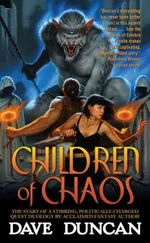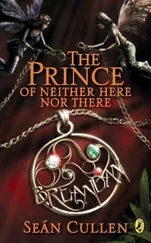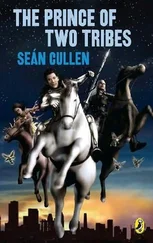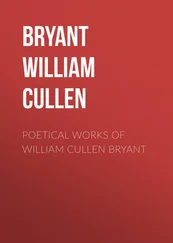____
Mr. D found new ways to amuse his kids at school. For each homecoming assembly, he impersonated a celebrity. One year, the homecoming theme was Copacabana, and Mr. D strode out dressed as Barry Manilow, in a fluffy blond wig, white leisure suit, and Day-Glo Hawaiian shirt.
“Hey, Mr. D, nice shoes!” a girl yelled. He kicked his leg up to show off his four-inch platform heels. The kids ate it up. The assembly was standard high school: cheers, awards, a hands-free cake-eating contest, and a blindfolded obstacle course. Typical raucous confusion ruled the corridors before and after.
Every now and then, on a nice day, Mr. D wandered outside for serenity. The heavy door swung shut behind him, the bolt caught, and the frenzy of nervous energy ceased. It was so still. Each step, he could hear the grass squish beneath his shoes. A teacher strolled to her car in the distance. Her keys tingled—they could be dangling from his own hand. He made the short hike up Rebel Hill. The crosses were gone, their holes filled, but the grass had not grown back along the path.
At the top of the mesa, the back side of Rebel Hill was deserted. When he stopped there long enough, he would see the prairie dogs. At first there was no sign of them, no movement whatsoever, save the overgrown grasses bending softly to the breeze. After fifteen minutes of silence, they began to scurry about the clumps of mountain aster, foraging for food, socializing, grooming each other, fattening up for the winter. Six months after the tragedy, Mr. D had run into a Japanese film crew up there, enraptured by the charming rodents. The crew had come to shoot a documentary about the massacre; they had expected teen angst and American social Darwinism. They were seduced by the tranquillity—less than a hundred yards from the school. They shot hours of footage of the twelve-inch prairie dogs.
The Japanese crew saw this place somewhat differently than Americans did. Their depiction was by turns tumultuous, brutal, explosive, and serene.
____
School shooters faded as a national fear for a while. They worsened in Europe. They returned to the States in an uglier form in the fall of 2006, when a spate of adult killers realized that a school setting would reap attention. There were four shootings in a three-week span, beginning in late August 2006. The shooters used various tactics to resemble the Columbine killers, including trench coats and Web sites mentioning them by name. They appeared to see Eric and Dylan’s legacy as a marketing opportunity. National attention focused on five girls killed in a one-room Amish school in Pennsylvania. But in Denver, the Platte Canyon shooting was particularly tough.
Platte Canyon High School was just one county over, and the police force so small that the Jeffco sheriff commanded the response team. It was a big national story for a few hours; then it was over. In Jeffco, it hit much harder. The Denver TV stations stayed live with the story all afternoon. Everyone was transfixed. This time it was a hostage standoff, and the SWAT team did rush the building. The gunman had only two girls left at that point. When the cops rushed in, he shot one in the head, then took care of himself. He died instantly, but the victim was medevaced out. The city watched her helicopter take off and land on the rooftop of St. Anthony’s; then viewers waited, hoping, for two hours. Doctors held a press conference early in the evening. She’d never had a chance.
The next morning’s Rocky Mountain News was filled with photos eerily like April 20: survivors sobbing, praying, holding on tight.
Bomb scares at Columbine spiked. The school was evacuated a few days later. Moms felt their muscles clench, bracing for the terrifying news. Some had almost forgotten Columbine, but their bodies remembered. In an instant, it was April 20 again. The danger passed in a few hours—it was only a prank. The anxiety lingered.
In the ten years after Columbine, more than eighty school shootings took place in the United States. The principals who survived—many were targeted—invariably found themselves in over their heads. Mr. D made himself available to all of them. Many accepted his offer. He spent hours every semester sharing what he had learned.
Those calls were hard. An e-mail he received that fall was worse. “Dear Principal,” it said. “In a few hours you will probably hear about a school shooting in North Carolina. I am responsible for it. I remember Columbine. It is time the world remembered it. I am sorry. Goodbye.”
It had been sent in the morning, but Mr. D didn’t check e-mail for several hours. He called the cops immediately, and they sent word to the boy’s high school. Too late. The nineteen-year-old had driven past his school and fired eight shots, injuring two superficially. Then police raided his home and found his father dead.
The shooter was apprehended and taken into court. He was asked why he was obsessed with Columbine. He said he didn’t know.
School shooters were starting to feel like a threat again. But the real shocker came the following spring, at Virginia Tech. Seung-Hui Cho killed thirty-two people, plus himself, and injured seventeen. The press proclaimed it a new American record. They shuddered at the idea of turning school shootings into a competition, then awarded Cho the title.
Cho left a manifesto explaining his attack. It cited Eric and Dylan at least twice as inspiration. He’d looked up to them. He did not resemble them. Cho did not appear to enjoy his rampage. He did not expect to. He emptied his guns with a blank expression. He shared none of Eric or Dylan’s bloodlust. The videos Cho left described himself as raped, crucified, impaled, and slashed ear to ear. Cho appears to have been severely mentally ill, fighting a powerful psychosis, possibly schizophrenia. Unlike the Columbine killers, he did not seem to be in touch with reality or comprehend what he was doing. He understood only that Eric and Dylan left an impression.
52. Quiet

The morning of the attack, Eric and Dylan shot a brief farewell video in Eric’s basement. Eric directed. “Say it now,” he said.
“Hey, Mom,” Dylan said. “I gotta go. It’s about a half an hour till Judgment Day. I just wanted to apologize to you guys for any crap this might instigate. Just know I’m going to a better place. I didn’t like life too much, and I know I’ll be happy wherever the fuck I go. So I’m gone. Good-bye. Reb…”
Eric handed him the camera. “Yeah…. Everyone I love, I’m really sorry about all this,” Eric said. “I know my mom and dad will be just like… just fucking shocked beyond belief. I’m sorry, all right. I can’t help it.”
Dylan interrupted him from behind the camera. “It’s what we had to do,” he said.
Eric had one more thought, for the girl from prom night. “Susan, sorry. Under different circumstances it would’ve been a lot different. I want you to have that fly CD.” Dylan got restless and snapped his fingers. Eric flashed an angry look. That shut him up. Eric had something profound to deliver. Dylan couldn’t care less. Eric lost his big moment. “That’s it,” he said. “Sorry. Good-bye.”
Dylan turned the camera to face himself. “Good-bye.”
____
Eric and Dylan spent just five minutes firing outside. They killed two people and advanced into the school. For five minutes, they fended off deputies, shot Dave Sanders, and roamed the halls looking for targets. They began tossing pipe bombs over the railing, down into the commons, which appeared deserted. It was not. Several students hiding under tables made a run for it and fled out the cafeteria doors. They all made it out safely. Others stayed put.
Читать дальше








